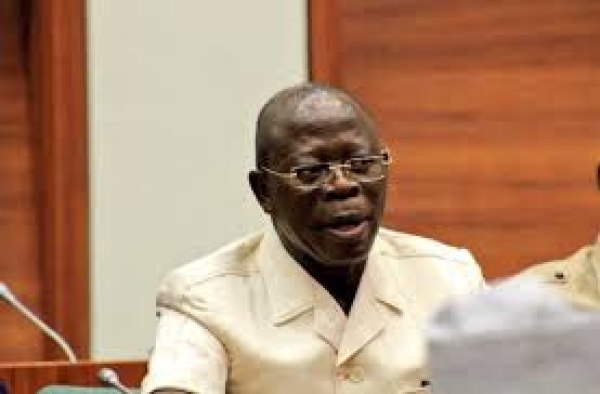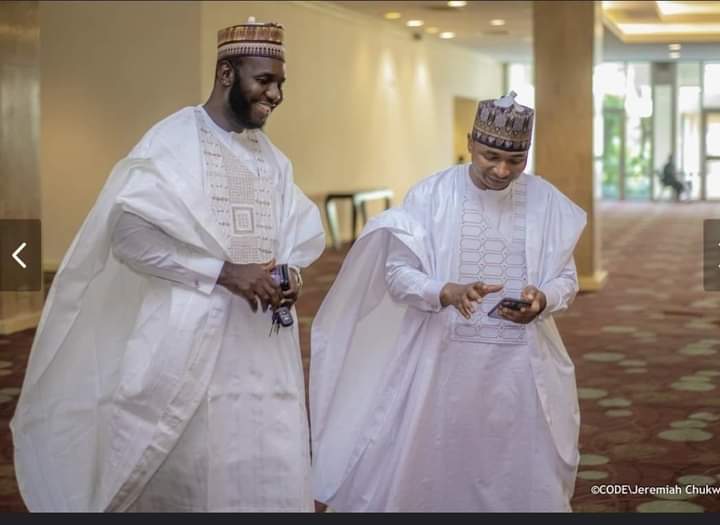The Election of National Assembly presiding officers should be routine, especially since voting is only by members. But in Nigeria, nothing is ever straightforward. We now have a situation where contenders for the offices of Senate President, Deputy Senate President, House of Representatives Speaker, and Deputy are running expensive media campaigns. And the ruling All Progressives Congress (APC) seems not to have learnt any lesson from what happened eight years ago. With ill-gotten money from ‘Paris Club refund’, some fat cats think they can buy the Senate gavel and the rest of us should go to hell on the issue of fairness, equity, and diversity in a plural state. They must not succeed.
Now, let me make something clear. To build a society where majority of the people are lifted out of poverty, there must be collaboration between the executive and the legislature. That precisely is how the presidential system of government which we copied from the United States was designed to function. And for that reason, it is important for the National Assembly leadership to work in harmony with the executive, especially when the ruling party is in the majority at the federal level. However, the idea of checks and balances would not work if the legislature were shackled by the executive as we can also see in practically all the 36 states of the country today.
To that extent, the next National Assembly cannot be an appendage of the executive. As the institution with the power of the purse, it should not only be independent, but it should also be seen to be so. I am therefore advocating that when they convene next week, members should be allowed to elect their presiding officers without any form of coercion from the executive. That is also hoping that the members themselves will be responsible enough to consider the necessity for ethno-religious balancing in the country. While most Nigerians would agree that the 9th Senate under Saraki was far more productive than the outgoing 9th under Lawan, the manner of his emergence as Senate President was a problem for the APC right from the beginning.
As a reminder and warning, I want to recall excerpts from my 11th June 2015, column, ‘Saraki, Dogara and APC’s Naivety’.
~~~
Following the election of Dr. Bukola Saraki and Hon. Yakubu Dogara as Senate President and House of Representatives’ Speaker respectively on Tuesday, the Peoples Democratic Party (PDP) National Publicity Secretary, Olisa Metuh, released a cynical statement. He told the APC to “stop whining and accept the will of the people, respect the independence of the legislature, as the PDP is not responsible for their naivety and crass inexperience.”
I believe that the APC leaders will do well to heed Metuh’s admonition. To imagine that the person you needed to truncate a legally convened legislative session is the Inspector General of Police rather than the Clerk of the National Assembly was poor judgement. And not following on what was happening within the PDP camp was a sign that the APC leaders still need to learn the ropes when it comes to high-wire politics in Abuja.
The night before the election, 47 PDP Senators had gathered at the Apo Legislative Quarters’ residence of the immediate past Senate President David Mark to present to him three options. Option one: Exploit the division within the rank of the APC by sponsoring Mark to contest for the office of Senate President. The argument was that by the Senate rule, all that a winner needed was a simple majority and since neither of the two APC contenders (Ahmed Lawan and Bukola Saraki) would likely step down for the other, Mark would get more votes. And once that happened, Mark could take the gavel. The only thing the APC could do in such situation would be to go to court. But Mark declined the offer. Option two: Conduct a mock poll among themselves (the PDP Senators in attendance) on who between the two APC candidates, (Lawan or Saraki) they should back but with the proviso that PDP would produce the Deputy Senate President. That was something they were not prepared to negotiate. Option three: Allow the APC to nominate a candidate, then counter-nominate another APC Senator and give him their block vote in what would amount to divide and rule.
This option has a precedent. A similar scenario played out at the Cross River State House of Assembly in 1991 during the transition to civil rule programme of General Ibrahim Babangida when there were two political parties, the National Republican Convention (NRC) and the Social Democratic Party (SDP). While Mr. Clement Ebri of the NRC won the gubernatorial election, his party secured only 12 of the 25 seats in the House of Assembly with the SDP winning the remaining 13. On the day of the election of Speaker, there was drama. The moment the SDP nominated its candidate for the office, a member from the NRC nominated another SDP member to be Speaker and he went on to win on the strength of his own vote added to that of the 12 NRC members. As it would happen, the said SDP member had done a deal with the NRC by trading away the position of Deputy Speaker.
By Monday night, at the end of what was the third PDP meeting in Mark’s house, it was the second option that prevailed. But with 32 of the 49 PDP Senators coming from the South-east and South-south, there was a strong argument at the meeting that Lawan, most favoured by Mark, holds extreme views when it comes to the issue of North and South. “He is, in fact, seen as a northern irredentist. From the PIB debate to confirmation of appointments to state of emergency and insurgency debates, Lawan employs hurtful, arrogant, and clearly divisive dictions”, said a returning Senator from the South-east. That gave Saraki a huge advantage.
However, the biggest odd against Saraki was that he had long-running ego issues with Mark who considers him arrogant and disrespectful. There was also an argument at the meeting that supporting Saraki by PDP would be like rewarding bad behaviour since he was one of the people who brought the party down. However, Ekweremadu argued in Saraki’s favour that he is more cosmopolitan and nationalistic in his approach to issues. A PDP Senator also told Mark that since Saraki was once a member of the family, it would be easier to work with him than with someone like Lawan who had never been a member of PDP in the last 16 years of his membership of National Assembly (eight years in the House and eight in the Senate).
So, even before the PDP Senators began to cast their mock ballots, it had been concluded that with Lawan being the choice of the APC, it was more pragmatic to go with Saraki who had been sounded out and had agreed to run with a PDP man for the office of Deputy Senate President. The choice of Ekweremadu was also strategic because, being very close to Mark, that helped to douse whatever ill-feeling the former Senate President may harbour against Saraki. There was also a strong sentiment against Asiwaju Bola Ahmed Tinubu at the meeting as many of the Senators argued that a vote for Lawan would be a vote for the APC National Leader. It was the same sentiment that was employed against Femi Gbajabiamila in the House of Representatives.
With the mock poll conducted among the PDP Senators while Mark and Ekweremadu abstained, Saraki polled 28 votes and Lawan secured 17 votes. By this time, the acting PDP National Chairman, Chief Uche Secondus and Metuh, who were practically in Mark’s house throughout Monday, had entered the fray to seal the decision of the Senators as that of the party. Saraki was then brought into the meeting where he agreed to offer the position of Deputy Senate President to the PDP, specifically to Ekweremadu.
However, once the APC leaders got wind of the PDP decision, a meeting was immediately scheduled for 9am at the International Conference Centre (ICC), just one hour ahead of the time that the National Assembly was supposed to be inaugurated. Meanwhile, since the president had already transmitted to the Clerk of the National Assembly the proclamation order and did not withdraw it, Mark and Ekweremadu, experienced in such matters (with sufficient clout to put pressure on the Clerk) knew the APC Senators were misreading the rule of the game by staying away from their inaugural session on the pretext of holding a party meeting elsewhere. To worsen matters, attempts were made to use the police to prevent the National Assembly members from entering the premises. Who gave the directive is still a matter of speculations, but it only infuriated the PDP Senators who rallied behind Saraki who had also got some of his APC senate colleagues to attend the session. By 6am, Saraki was already inside the National Assembly premises.
10am on the dot, the Clerk of the National Assembly commenced the session for the election of principal officers in the Senate. With Lawan and several of his APC colleagues still marooned at the ICC, Saraki was nominated for the post of Senate President and since he was unopposed with enough senators to make a simple majority, there was no contest. By the time the APC leaders and the senators (who were still expecting the president to arrive the ICC) realised the futility of their action, it was all over. Many of course rushed back to the National Assembly only to meet Saraki holding the gavel as the Senate President…
ENDNOTE: Enough said!
You can follow me on my Twitter handle, @Olusegunverdict and on www.olusegunadeniyi.com.





